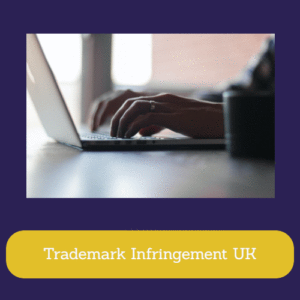 Trademarks are a type of intellectual property. Often referred to as a ‘badge of origin, a trademark distinguishes the goods or services of one undertaking from those of another. Trademark infringement in the UK occurs when an authorised third party uses a mark identical or similar to a registered trademark in connection with goods or services that are the same as or similar to those for which the trademark is registered.
Trademarks are a type of intellectual property. Often referred to as a ‘badge of origin, a trademark distinguishes the goods or services of one undertaking from those of another. Trademark infringement in the UK occurs when an authorised third party uses a mark identical or similar to a registered trademark in connection with goods or services that are the same as or similar to those for which the trademark is registered.
To be connected to a trademark infringement solicitor near you, please either call us now on 0845 1391399 or complete a Free Online Enquiry.
What Is A Trademark?
Generally speaking, a trademark can be anything capable of identifying the origin of goods or services and can be represented graphically. Words, phrases, logos, shapes, colours, and even sounds can be registered as trademarks, provided they meet the relevant registrability criteria.
How Do You Register A Trademark?
In the UK, applications for trademark registrations must be made to the UK Intellectual Property Office (the IPO). The IPO breaks down the goods or services for which a mark can be registered into 45 different classes, including clothing, medical services and computer products. The IPO will carry out numerous checks and take several procedural steps to confirm the trademark’s registrability, before proceeding to register it where eligible. This process usually takes around three months.
Trademark protection lasts for an initial period of 10 years, but registration can be renewed indefinitely.
What Is Trademark Infringement UK?
In the UK, the following circumstances may constitute an infringement of trademark if they take place in the course of business:-
- An unauthorised third party uses a mark identical to a registered trademark in connection with identical goods or services.
- An unauthorised third party uses a mark identical to the registered trademark in connection with similar goods or services, and there is a risk of confusion on the part of the public.
- An unauthorised third party uses a mark similar to the registered trademark in connection with identical goods or services, and there is a risk of confusion on the part of the public.
- An unauthorised third party uses a mark similar or identical to a famous registered trademark and, in doing so, takes unfair advantage of it. In this instance, the goods or services in question need not be the same or similar to the registered ones.
Some types of trademark infringement can lead to criminal sanctions and necessitate the involvement of local trading standards departments and the police.
Trademark law is complex and ever-changing, and it is crucial to take advice from an experienced trademark attorney when using a mark which might potentially infringe a registered trademark, or to protect your registered trademarks from infringement.
How Do I Bring A Claim For Infringement Of Trademark?
Given their technical nature, claims for trademark infringement in the UK are usually dealt with by specialist Judges, either in the High Court or the Intellectual Property Enterprise Court. Many cases of trademark infringement, however, are settled before trial following negotiation between the parties’ legal advisors. It is, therefore, important to seek specialist legal advice from an experienced trademark attorney who will seek to negotiate the best settlement terms for you without the need for costly litigation.
What Are The Remedies For Trademark Infringement In The UK?
If an authorised third party has infringed your registered trademark, the remedies available include –
- An injunction. This will force the infringer to stop their infringing acts and refrain from infringing your trademark in the future.
- Damages or an account of profits. Damages in trademark infringement cases can be calculated in a variety of ways. They may be based on the trademark owner’s usual licence fee if they regularly licence the trademark for use by third parties, or the profits that the trademark owner has lost as a result of the infringement. Alternatively, the infringer may be forced to account for the profits made through the sale of the infringing goods or services.
- Delivery up or destruction. The infringer may be ordered to destroy or deliver up all infringing goods to the trademark owner. This may include the goods and any other infringing material, such as marketing literature.
The remedies available will form the basis of the settlement negotiations between the parties’ respective legal advisors. Most settlements will mirror the remedies that the Court would eventually award.
What Do Infringement Of Trademark Solicitors Do?
The importance of a trademark’s role in developing a successful business cannot be overstated. The detrimental effects of trademark infringement can be considerable. They include brand dilution, reputational damage and issues with licensing the trademarks to third-party business partners. Trademark infringement attorneys possess a deep understanding of the intricacies of trademark law in the UK and specialise in acting for clients facing trademark infringement issues. They will act quickly and decisively to stop the infringement, stem the ongoing damage, and claim the financial damages to which you are entitled. Conversely, if you are accused of trademark infringement, a specialist trademark attorney will defend the allegations against you and seek to extricate you from the situation in the quickest and most favourable way.
Trademark Infringement Solicitors Near Me
To be connected to a specialist trademark infringement solicitor near to where you live, please either call us now on 0845 1391399 or complete a Free Online Enquiry.
